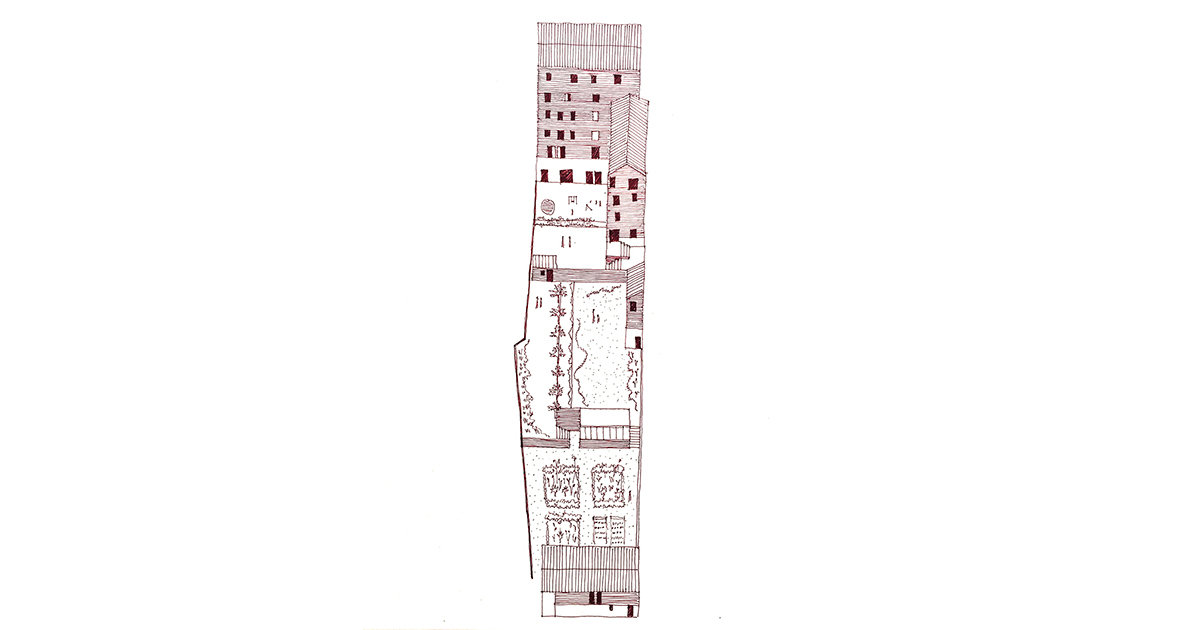
The thesis seeks to explore perception and illusion of depth through layering. The unit within which the thesis sits is “Commonplace” and the vehicle for this study is supported transitional housing, gardens and a restaurant, located at West Gate, in the medieval town of Drogheda, Ireland. Where the accommodation is for private use, the gardens and restaurant are seen as facilities for the town and a place for the residents to work.
The design was examined at a variety of scales. At the scale of the town, the experience of the proposal as a whole is in line with that of the common character of the Drogheda townscape where, for example, elevations appear flat and collaged when viewed from the river. In the expression of form, elevation and material, there is a certain sense of the ordinary; as is appropriate to the nature of the site, the brief and the occupants within the complex. Counterpointed against this, there are particular moments within the scheme that are uncommon and are where the experience of the thesis idea is heightened.
The building design was resolved through iterative sketches and model studies at different scales. Particular attention was paid to the consideration of the occupants of the accommodation and this led to the thinking behind the layered spaces in the apartments which offer a perceived larger or deeper space and play with the subjects perception of depth between the inside and the outside.
This student worked within a group entitled Commonplace, charged with unearthing the extraordinary in the ordinary. She interpreted this challenge through the lens of her own thesis interest in the layering of reality and illusion within art, urbanism and architecture.
Her scheme for supported transitional women’s housing in an Irish town delicately unveils what might otherwise be taken for granted of both site and brief. Heretofore unremarked spatial relationships in the town are brought into appearance. The strongly elevational quality of the sloping, layered streets, the now disparate elements of a once thriving monastery and industry, the connection to a distant but formative landscape; all are analysed and redoubled on the site. Meanwhile, the brief balances the need for shelter with an aspiration for social reintegration by subtle means at the scales of the town, site and room. The façade is measured off its neighbour but with hidden, occupied and surprising depths. Staircases and entrances are judged for private interraction. The garden and its café provide pleasurable, generous and playful space for the public, interwoven with intimate and protected opportunity for the occupants.
This student has reimagined moments in architecture through collage, using the technique to lever equivalent insights from a window cill and the entire urban realm. The result is a calibrated project that skilfully imbues an urgent and socially worthy brief with unexpected sensual value and delight.
This thesis explores the perception and illusion of depth by the collage of different layers. The project is well thought out and beautifully presented, providing convincing proof that architectural quality can be achieved with clarity and poignancy of shapes and textured surfaces.